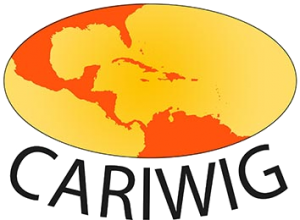 The Caribbean Weather Impact Group (CARIWIG) Project Supports Risk-Based Decision-Making in the Caribbean
The Caribbean Weather Impact Group (CARIWIG) Project Supports Risk-Based Decision-Making in the Caribbean
Bridgetown, Barbados; February 12, 2015 – The Caribbean Weather Impacts Group (CARIWIG) project is supporting risk-based decision-making in the Caribbean region. The Project hosted a policy workshop and training event at the Savannah Hotel and at the University of the West Indies, Cave Hill Campus in Barbados this week (February 10 – 12). The training exposed 34 participants, including institutional leaders and representatives from across Caribbean institutions, to a suite of tools developed under the Climate and Development Knowledge Network (CDKN) supported initiative. The four tools developed under the project for use in the Caribbean are:
Regional Climate Models and Caribbean Assessment of Regional Drought (CARiDRO)
The Caribbean Assessment Regional DROught (CARiDRO) was designed to facilitate drought assessment in the context of the Caribbean and Central America. It is a flexible system that should accommodate the requirements of different users. The online tool is composed of two main sections: a descriptive one where the user can find information on how to use the tool as well as terms and concepts that are useful. The other section is where the user can fill out a form indicate the necessary results required. CARiDRO allows the user to access and to process different observed and model datasets for the Caribbean Region to produce results based on two Drought Indexes, the Standardized Precipitation Index (McKee,1993) and the Standardized Precipitation-Evaporation Index (Serrano et al, 2010).
Weather generator
The Weather Generator provides daily weather time series for use in impact assessments and impact models. It generates weather data for the future that can be used across sectors (e.g., water, agriculture, health) in the same way as historic weather series. The main benefit and utility of the WG is that it provides information for a single point location – directly comparable to what is observed at weather stations.
The Simple Model for Advecting Storms & Hurricanes (SMASH)
SMASH is a simple model based on past memorable and notable storms that can generate grids for each 15 minute period in a modeled storm. The variables include precipitation rate and wind speed.
Portal and observed data
This web portal provides information and datasets concerning:
- The observed climate of the present day
- Regional Climate Model projection of the future climate
- Future scenarios of weather downscaled from the Regional Climate Model projections
- Scenarios of weather derived from hypothetical tropical cyclone events
This web portal is intended for use by regional and national institutions, consultants and scientists concerned with the climate and impacts of future climate change in the Caribbean region. Accordingly, a considerable degree of contextual knowledge of climate change and its impacts, and analytical expertise is assumed.
Further information on the project: http://www.cariwig.org/
The tools will provide an open access online resource, and will advance efforts under the project to provide locally relevant and unbiased climate change information that is specific to the Caribbean and relevant to the region’s planning horizons. The integration of the tools into national policy agendas across the region is crucial to ensuring effective decision-making and improving climate knowledge and action in the region. It is a significant “contribution to the body of knowledge to aid in decision-making. Benefits will come through people being sensitized about what is Climate Change and their singular responsibility to engage in climate resilient actions based on their understanding of climate vulnerabilities and impacts,” according to Keith Nichols, the CCCCC’s project development specialist.
The efficacy of the tools in strengthening climate decision-making and planning in the Caribbean is being tested through ten case studies focussed on areas such as drought, agriculture, water resources, coastal zone structures, health (dengue fever), and urban development and flooding. The case studies offer a real-world testing ground for the demonstration and enhancement of the utility of the four CARIWIG tools for regional decision-making and the building of capacity regionally through training exercises.
The CARIWIG project is being implemented collaboratively by Newcastle University, the Caribbean Community Climate Change Centre (CCCCC), the University of East Anglia, the University of the West Indies and the Institute of Meteorology in Cuba (INSMET).
